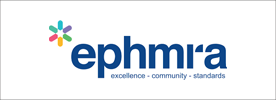
Remote qualitative research has emerged as a lasting trend in the ever-evolving landscape of market research, solidifying its position in the field, with end-user comfort levels changing dramatically since 2020. This methodology has been propelled by advancements in technology, which have significantly enhanced the flexibility and accessibility of virtual qualitative research. While remote qualitative research has been widely embraced for its advantages, there are inevitable challenges and risks when conducting research virtually. With careful consideration, you can overcome these obstacles and conduct high-quality research that delivers valuable insights.
Advantages of Conducting Remote Qualitative Research
The advantage of remote qualitative research is that it provides researchers with global reach, time efficiency, and improved participant comfort and accessibility, particularly for respondents with mobility challenges. Researchers are able to leverage the advantages of remote qual to uncover insights from more diverse populations while optimising resources and facilitating an inclusive research environment.
Global ReachUnlike traditional in-person research, and central location days limited by locality, remote research opens doors to geographically disparate participants. This broadens the range of backgrounds, experiences, and perspectives that researchers can tap into, leading to a more comprehensive understanding of the study topic. Additionally, remote qualitative research allows researchers to examine how cultural factors influence attitudes, behaviours, and beliefs.
Cost and Time EfficiencyRemote qualitative research offers substantial cost savings by eliminating travel expenses and venue bookings. It also optimises researchers' time by allowing them to conduct multiple sessions without the need for travel time between locations, or have time away from the office. Simplicity and scheduling flexibility contribute to the overall cost and time efficiencies of remote qualitative research, making it a compelling option for researchers.
Participant AccessibilityThe accessibility of remote qualitative research allows participants to contribute without having to travel, reducing potential disruptions and inconvenience. Participants may also feel more comfortable when they’re in their own environment which can lead to a higher likelihood of providing authentic responses. In a recent article focusing on transnational research, the authors note that participants are more engaged when they are in an environment they are comfortable in. They also mention that participants are more easily able to withdraw from the interview process if they feel uncomfortable, which also adds to their comfort with the process.
Challenges and Risks of Conducting Remote Qualitative Research
While remote qualitative research offers a range of benefits, it can also present challenges for certain aspects of the research process such as ethical guidelines, data security and participant privacy, accessibility, and recruitment sampling that must all be addressed to ensure successful outcomes.
Ethical GuidelinesEthical considerations are a big component of remote research, particularly regarding participant consent, risk assessment, data handling, and power dynamics. Due to the inherent nature of conducting studies in a distributed environment, ethical considerations can cause challenges in remote research. Obtaining informed consent is an ethical requirement in research, and it can be challenging with remote research. Without the benefit of face-to-face interaction, those conducting research have to provide comprehensive and easily understandable information to guarantee the participants understand the study’s purpose, risks, and benefits.
Data Security and Participant PrivacyRemote research involves the transmission and storage of data through digital platforms, making data security a top priority. One of the most important components of conducting remote research is selecting secure platforms that provide robust encryption and other necessary security features. Aside from choosing reputable platforms with strong privacy policies and data protection measures in place, establishing protocols for secure data storage, using encrypted file-sharing methods, and storing data in password-protected systems can help eliminate the potential for data security issues.
Although remote research offers numerous advantages in terms of accessibility, it also presents certain challenges, particularly in relation to privacy. Compared to controlled settings where those conducting the research can directly oversee the physical environment, privacy concerns are heightened in remote research. Protecting the confidentiality of participants becomes more challenging with the increased potential for unauthorised access or breaches. The implementation of strong measures to protect the anonymity of participants ensures their comfort and trust in engaging with remote research methodologies.
AccessibilityThough remote research has the advantage of reaching a wider and more diverse participant pool, respondents’ ability to fully engage can be affected by potential disparities in technology access, digital literacy, or internet connectivity. Providing equitable access to remote research can be problematic and require specific measures to minimise any barriers to participation so that a broad range of individuals can contribute to the research. Assessing technology requirements, providing alternative participation options, offering technical support, and simplifying procedures are steps that researchers can take to prevent disparities in access to remote studies.
Recruitment SamplingRecruitment and sampling in remote research pose unique challenges that require strategies to provide a representative sample. One of the primary advantages of remote research is the ability to expand the participant pool, however, to achieve sample goals, factors such as diverse demographics, technological access, and participant motivation need to be taken into consideration.
To provide a representative sample, researchers should implement strategies that overcome potential biases including, considering factors such as diverse demographics, such as age, gender, ethnicity, socioeconomic status, and geographical location. Recruiting participants who reflect the target population in order to capture a broad range of perspectives and experiences is an important aspect of research.
M3 Solution
Due to the growing demand for remote qualitative research methods, M3 Global Research designed and built QualStage as a platform that maintains the same level of excellence found in traditional in-person research. With a strong emphasis on information security, QualStage adheres to the protocols outlined by M3’s ISO 27001 certification, guaranteeing the confidentiality, integrity, and availability of information.
QualStage offers unique advantages, including built-in encryption that guarantees respondent anonymity, a dedicated private backroom equipped with chat and note capabilities for users and observers, and a single link to effortlessly access live scheduled interviews. Real-time flags allow for the identification of key moments, while built-in adverse effect reporting simplifies post-session recall.
To further enhance the versatility of QualStage, the platform includes additional capabilities that cater to the needs of the evolving qualitative research landscape:
- Dial-in access for clients: Clients can dial in on-the-go and listen to interviews live
- Dial-in access for respondents: Respondents have the option to dial in and join interviews by phone providing an audio backup in case any internet issues occur
- Co-browsing functionality: QualStage has integrated co-browsing features, enabling researchers to share a mirror image
Whether used alongside M3 recruitment or as a stand-alone platform, QualStage offers a convenient web-based solution that eliminates the need for time-consuming downloads and prioritises anonymity without any risky work-arounds or ‘hacks’.
Additionally, QualStage incorporates seamless simultaneous interpretation, providing 2-channel audio for both native and interpreted languages. With role-based access, users can effortlessly navigate predefined areas of the platform, ensuring a smooth and intuitive experience.
Remote qualitative research offers immense potential to gain comprehensive insights. By addressing the challenges and leveraging a secure platform like QualStage, researchers can overcome obstacles and conduct high-quality research that drives meaningful results in an increasingly digital world.
Learn more about M3's solution for remote qual research.





